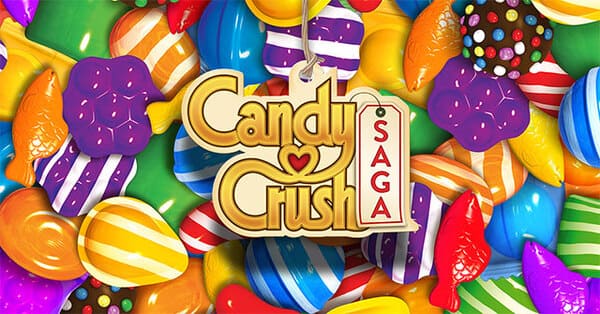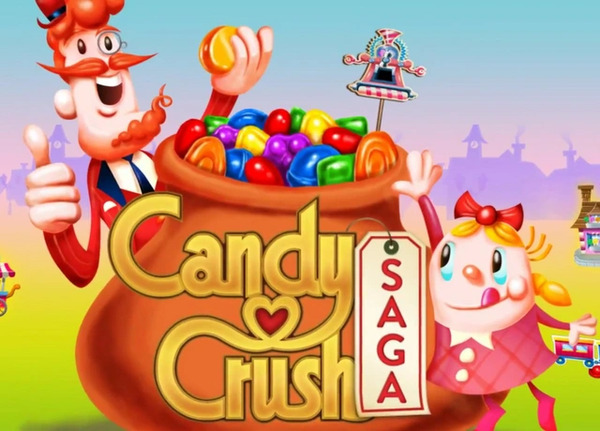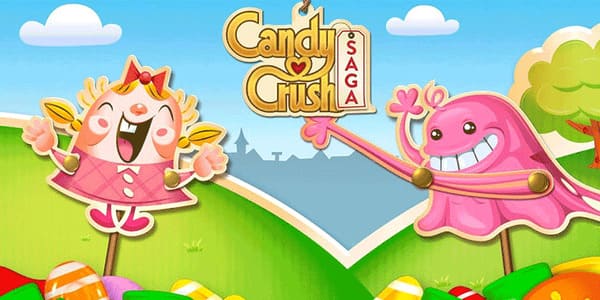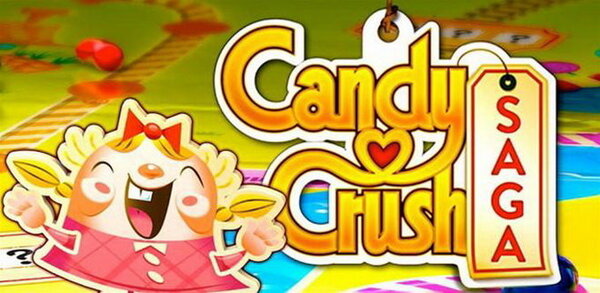Introduction
Candy Crush Saga is one of the most popular mobile puzzle games of the last decade, attracting millions of players worldwide. Its simple yet addictive mechanics, vibrant graphics, and enticing rewards have kept players hooked for years. However, despite its widespread popularity,
Candy Crush Saga raises significant concerns about its impact on players’ mental health and well-being. The game operates on a freemium model that often encourages players to spend money, and its difficulty curve and design decisions create a highly addictive experience. This article will explore the psychological effects of
Candy Crush Saga, delving into the addictive nature of the game, its impact on mental health, and the ethical concerns surrounding its design.

1. The Addictive Nature of Candy Crush Saga
1.1 The Mechanics of Addiction
At its core,
Candy Crush Saga is designed to be highly addictive. The game’s mechanics involve a combination of puzzles and challenges that gradually increase in difficulty. As players complete levels, they are rewarded with colorful animations, boosts, and candy combinations. The immediate gratification of passing a level, coupled with the dopamine rush of seeing candy pieces explode, creates a feedback loop that keeps players coming back for more.
1.2 The Role of Random Rewards
Candy Crush Saga uses a "variable ratio reinforcement" schedule, a psychological principle that plays a crucial role in addiction. This concept, derived from behaviorism, suggests that unpredictable rewards, such as random boosters or free lives, can create a sense of excitement and anticipation. When players are unsure of when they will receive a reward, they are more likely to continue playing, which keeps them engaged for longer periods.
2. The Impact of the Difficulty Curve
2.1 Gradual Increase in Difficulty
As players progress through
Candy Crush Saga, the difficulty of each level increases. While this creates a sense of progression and accomplishment, it can also become a source of frustration. Players may find themselves stuck on a particularly challenging level, prompting them to either wait for a free life or purchase power-ups to move forward. This tension between progress and frustration is a deliberate design feature that pushes players to continue playing, even when they are not enjoying the experience.
2.2 The Frustration of Blocked Progression

Levels that seem impossible to beat can lead to feelings of helplessness and frustration. In some cases, players may spend hours trying to clear a single level without success. The inability to progress can lead to emotional stress, and many players eventually resort to spending money on boosters or extra lives to avoid the prolonged challenge. This feature has led to criticism about the game's ethical design, as it capitalizes on players’ frustration to drive in-game purchases.
3. The Impact of Time-Limited Events and Challenges
3.1 Time-Limited Events and Pressure
Candy Crush Saga frequently features time-limited events and challenges, where players are encouraged to complete specific tasks within a set time frame. These events often offer unique rewards, such as exclusive boosters or in-game currency. While these events can create a sense of urgency and excitement, they can also add a layer of pressure that detracts from the enjoyment of the game. Players may feel compelled to play longer hours in order to complete the event and earn the rewards, leading to burnout and unhealthy gaming habits.
3.2 Gamification of Time Management
The integration of time-limited events in
Candy Crush Saga adds an element of gamification to time management. The need to juggle multiple tasks, goals, and limited-time rewards can create a feeling of constant obligation. For players with busy lives or those who struggle with time management, this can lead to stress, as the game feels like another task to complete rather than an enjoyable pastime.
4. The Role of Microtransactions and In-App Purchases
4.1 Encouraging Spending Through Frustration
Candy Crush Saga uses microtransactions as a core element of its monetization strategy. When players struggle to pass difficult levels or run out of lives, they are often prompted to purchase in-game currency or boosters. This “pay-to-win” approach can lead players into spending significant amounts of money, especially when they are emotionally invested in the game. The game’s design exploits the player’s desire to continue progressing and avoid the frustration of blocked levels.
4.2 The Ethical Concerns of Microtransactions
The prevalence of in-app purchases in
Candy Crush Saga has raised ethical concerns about how mobile games are designed to encourage spending. While the game is free to download, players are encouraged to spend money in order to bypass challenges. This practice has been criticized for preying on vulnerable individuals, including children, who may not fully understand the financial consequences of their in-game purchases. Many players unknowingly rack up large bills due to the constant prompts and pressure to buy boosters or extra lives.
5. Social Comparison and the Desire for Status

5.1 Leaderboards and Social Features
Candy Crush Saga includes social features such as leaderboards, where players can see how they rank compared to their friends or other players. This social comparison can lead to a desire for status and recognition, encouraging players to play more frequently in order to maintain their position on the leaderboard. The sense of competition can push players to spend money on boosters to improve their scores or to gain an advantage over others.
5.2 The Emotional Toll of Social Comparison
While leaderboards can motivate some players, they can also take an emotional toll on others. Players who consistently fall behind their friends or fail to reach high ranks may experience feelings of inadequacy or frustration. In some cases, players may feel pressured to spend money on in-game purchases to keep up with their peers, further intensifying the game’s addictive nature.
6. Escapism and the Role of Candy Crush Saga in Mental Health
6.1 Escaping Reality Through Gameplay
For many players,
Candy Crush Saga offers an escape from the stress and pressures of everyday life. The simple, colorful gameplay provides a temporary distraction from real-world problems, and the easy-to-understand mechanics make it accessible to a wide audience. However, excessive gameplay can lead to negative psychological effects, such as social isolation, neglect of responsibilities, and even addiction.
6.2 The Thin Line Between Relaxation and Addiction
While some players use
Candy Crush Saga as a form of relaxation, others may find themselves playing for hours on end. The game's addictive mechanics can blur the line between casual gaming and addiction, as players continue to play for longer periods despite negative consequences. This behavior can lead to a range of mental health issues, including anxiety, depression, and sleep disturbances.
7. The Impact on Children and Vulnerable Populations
7.1 Children and In-App Purchases
Candy Crush Saga is accessible to a wide range of players, including children. The game's simple mechanics make it easy for younger audiences to understand and enjoy. However, this also raises concerns about the potential for children to make accidental in-app purchases. With the game's frequent prompts to buy boosters or extra lives, children may unwittingly spend money, leading to financial consequences for parents.
7.2 Vulnerable Populations and Behavioral Addiction
The game’s addictive design also raises concerns about its impact on vulnerable populations, such as individuals with a history of addiction or mental health challenges. The use of variable rewards, frustration, and social pressure can exacerbate existing conditions, leading to unhealthy gaming habits and emotional distress. As
Candy Crush Saga continues to target a broad audience, it is important to consider the potential harm it may cause to those most at risk.
8. Balancing Enjoyment and Addiction: The Design Dilemma
8.1 Striking a Balance Between Fun and Engagement
Candy Crush Saga is undeniably fun and engaging, with its colorful graphics, satisfying puzzles, and rewarding mechanics. However, its design intentionally keeps players engaged for extended periods, often at the expense of their mental well-being. The challenge for game developers is to strike a balance between creating an enjoyable experience and avoiding excessive addictive behaviors. By adjusting the difficulty curve, limiting in-app purchases, and reducing the focus on social comparison, developers could make
Candy Crush Saga a healthier experience for players.
8.2 Can Candy Crush Saga Evolve?
Given the growing awareness of gaming addiction and its psychological effects, there is hope that
Candy Crush Saga can evolve to offer a healthier gaming experience. By integrating features that encourage moderation, such as reminders to take breaks or reducing the emphasis on in-app purchases, the game could create a more sustainable and enjoyable experience for players.
9. The Future of Mobile Gaming: Ethics and Responsibility
9.1 Ethical Design in Mobile Games
The success of
Candy Crush Saga has highlighted the importance of ethical design in mobile games. As the industry grows, there is increasing pressure on developers to consider the psychological impact of their games. Ethical considerations should be at the forefront of game design, with a focus on creating experiences that promote healthy gaming habits, rather than exploiting players' emotional vulnerabilities.
9.2 Consumer Awareness and Game Regulation
As mobile gaming continues to evolve, consumers must be more aware of the potential risks associated with addictive games like
Candy Crush Saga. Regulation of in-app purchases and better transparency around game mechanics could help protect vulnerable players, ensuring that mobile games remain a source of entertainment rather than exploitation.
10. Conclusion
Candy Crush Saga is a prime example of how mobile games can captivate players with addictive mechanics, creating a cycle of engagement that is difficult to break. While the game is undeniably entertaining, its design raises serious concerns about the psychological effects of prolonged gameplay, the pressure to spend money, and the ethical implications of in-app purchases. As mobile gaming continues to grow, developers must prioritize the mental health and well-being of players by creating games that are engaging but not exploitative.






 Free Fire
Free Fire is a popular mobile battle royale game where 50 players fight to be the last one standing. It features fast-paced gameplay, various characters with unique abilities, and a wide range of weapons and modes.
Read full review
Free Fire
Free Fire is a popular mobile battle royale game where 50 players fight to be the last one standing. It features fast-paced gameplay, various characters with unique abilities, and a wide range of weapons and modes.
Read full review
 Brawl Stars
Brawl Stars review: Explore fast-paced modes, unique characters, and dynamic gameplay in Supercell's hit mobile multiplayer game. Perfect for casual and competitive play
Read full review
Brawl Stars
Brawl Stars review: Explore fast-paced modes, unique characters, and dynamic gameplay in Supercell's hit mobile multiplayer game. Perfect for casual and competitive play
Read full review
 Black Myth: Wukong
This review has explored the many facets of "Black Myth: Wukong," from its origins in Chinese mythology to its gameplay and technical performance. With its blend of tradition and innovation, this game is a testament to the creativity and ambition of Game Science, setting a new standard for what action RPGs can achieve.
Read full review
Black Myth: Wukong
This review has explored the many facets of "Black Myth: Wukong," from its origins in Chinese mythology to its gameplay and technical performance. With its blend of tradition and innovation, this game is a testament to the creativity and ambition of Game Science, setting a new standard for what action RPGs can achieve.
Read full review
 Stumble Guys
Stumble Guys offers addictive, chaotic fun with vibrant visuals and simple mechanics. It’s a hit in the party game genre, with a bright future ahead.
Read full review
Stumble Guys
Stumble Guys offers addictive, chaotic fun with vibrant visuals and simple mechanics. It’s a hit in the party game genre, with a bright future ahead.
Read full review
 The Legend of Zelda
The Legend of Zelda has shaped gaming for decades with innovative gameplay, iconic characters, and cultural impact. It continues to influence and inspire across the industry.
Read full review
The Legend of Zelda
The Legend of Zelda has shaped gaming for decades with innovative gameplay, iconic characters, and cultural impact. It continues to influence and inspire across the industry.
Read full review